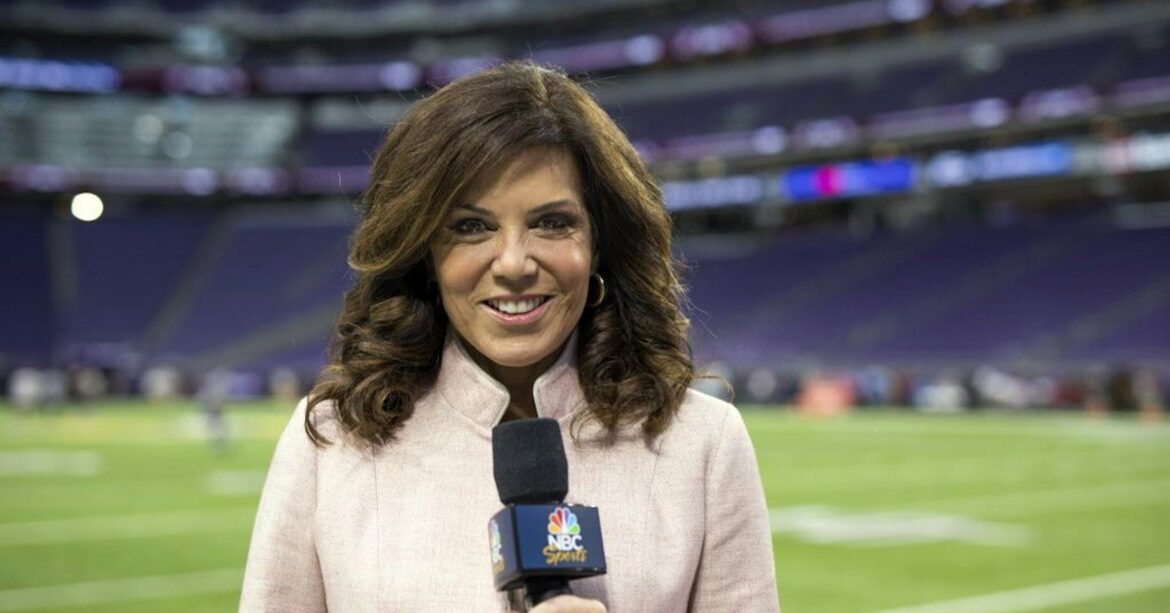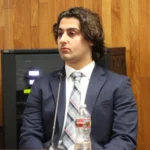Minnesota’s political scene is suddenly feeling a lot more crowded, and a lot more unpredictable.
A name many sports fans recognize from NFL sidelines is now making a serious play for Washington, signaling that the race for an open U.S. Senate seat is shaping up to be one of the state’s most closely watched contests.
Michele Tafoya Makes It Official
Former NBC Sports sideline reporter Michele Tafoya has formally entered the race as a Republican, filing paperwork with the Federal Election Commission to run for the Senate seat being vacated by Democrat Tina Smith.
Tafoya, 61, had been quietly signaling interest for months, but this filing makes her candidacy official and puts her squarely into Minnesota’s GOP primary.
She’ll be competing against Royce White, a former Iowa State basketball player who has already made one unsuccessful run for the Senate, as well as retired Navy SEAL Adam Schwarze, who has also declared his intention to run as a Republican.
Quiet Meetings and a Strategic Build-Up
Well before making the leap, Tafoya reportedly held discussions in Washington with major Republican power brokers, including the National Republican Senatorial Committee and the Senate Leadership Fund.
Those talks hinted that party leaders see her as a viable candidate, particularly at a moment when Republicans believe Democrats are vulnerable on issues like immigration and government fraud.
So far, the Minnesota Republican Party has not publicly commented on her entry into the race.
From Football Broadcasts to Political Advocacy
Tafoya spent more than a decade covering “Sunday Night Football” before leaving NBC in 2022.
Since then, she has leaned fully into conservative politics, working as a consultant and hosting her own podcast that tackles culture, policy, and national debates.
Her political views became public years ago when she described herself as a “pro-choice conservative” in an interview with Sports Illustrated.
She’s also no stranger to Minnesota politics, having previously co-chaired Kendall Qualls’ unsuccessful gubernatorial campaign against Governor Tim Walz in 2022.
Royce White and a Controversial Track Record
One of Tafoya’s main rivals in the Republican primary, Royce White, is already well known to voters.
He ran for Minnesota’s other Senate seat in 2024 but lost to longtime incumbent Amy Klobuchar.
White’s political rise has been rocky.
He has faced repeated accusations of misogyny, homophobia, and anti-Semitism, largely stemming from his past remarks.
One comment in particular drew widespread backlash when he suggested women had become “too mouthy” during a podcast appearance.
A Defiant Response From White
Shortly after Tafoya’s candidacy became public, White resurfaced an earlier interview and doubled down on his political identity.
In a blunt message posted online, he portrayed himself as the most authentic pro-Trump candidate in the race, claiming mainstream media and establishment Republicans fear him because of his “ULTRA MAGA” stance.
The message appeared aimed at solidifying support among Trump-aligned voters as the primary field grows more crowded.
Democrats Rush to Fill the Vacuum
On the Democratic side, the race has also come alive.
Lieutenant Governor Peggy Flanagan and Congresswoman Angie Craig quickly announced their own campaigns following Tina Smith’s decision to step aside.
Smith’s exit removes the advantage of incumbency for Democrats at a time when they are already struggling nationally.
Republicans currently hold a 53–47 majority in the Senate, giving them momentum as they push President Donald Trump’s agenda.
A Tough Map and a Shifting State
Minnesota hasn’t elected a Republican to statewide office since former Governor Tim Pawlenty won reelection in 2006.
Still, recent elections suggest the state is no longer a guaranteed win for Democrats, with several GOP candidates narrowly missing victories in 2022.
Republicans also see an opening in ongoing controversies, including the Somali daycare fraud scandal that helped derail Governor Tim Walz’s plans for a third term.
Immigration, Protests, and Political Tension
Immigration has become another flashpoint in Minnesota politics.
The fatal shooting of Minneapolis resident Renee Nicole Good by an ICE agent sparked intense protests and renewed debate over federal enforcement, putting the state at the center of Donald Trump’s broader immigration crackdown.
For Republicans, these moments represent opportunities to challenge Democratic leadership.
For Democrats, they underscore the risks of a race without an incumbent.
A Wide-Open Race Takes Shape
With high-profile candidates on both sides, unresolved controversies, and a state trending more competitive by the year, Minnesota’s Senate race is shaping up to be anything but predictable.
As primary battles heat up and party strategies sharpen, the question now is which candidate can best convince voters that change—or continuity—is exactly what Minnesota needs next.
Share on Facebook «||» Share on Twitter «||» Share on Reddit «||» Share on LinkedIn




